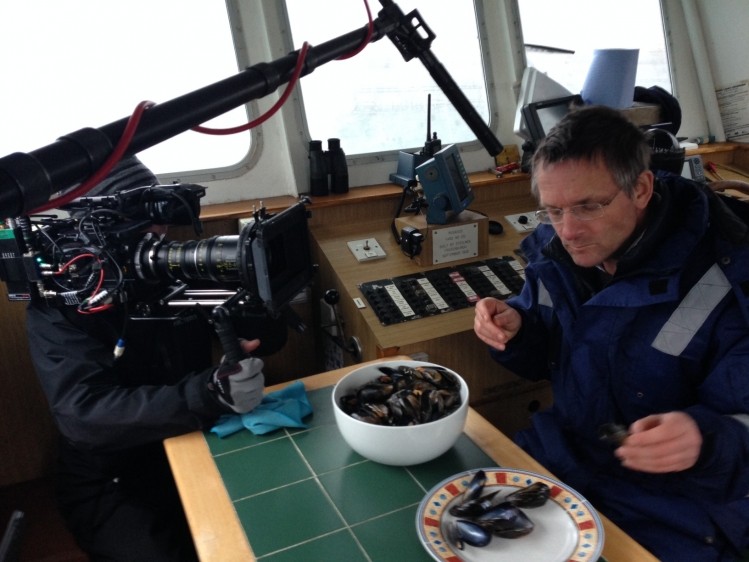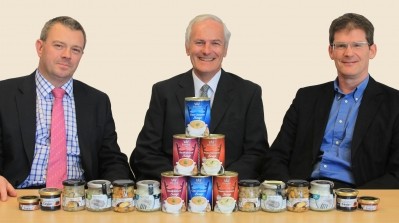BBC’s Horizon backs ethical production of mussels

The two-part programme hosted by Dr Michael Mosley focused on meat consumption and ethical ways of producing protein.
In it, he visited farms to discover the most ethical ways to farm beef, chicken and mussels.
Moseley concluded that mussels were “incredibly efficiently harvested” and had a “very low” carbon footprint.
‘Most efficiently farmed’
“Mussels [are] one of the most efficiently farmed form of protein,” he claimed. “Their carbon footprint per kilo of meat is about 10 times less than chicken and 30 times less than beef or lamb.”
He visited Michael Tait’s farm off the coast of the Shetland Islands to discover how it grew its mussels on ropes suspended from floats in the sea.
The young mussels – as free floating larvae or spat – settle naturally on the suspended ropes and then grow by feeding on sea plankton found in the tidal flows.
The energy used to farm the mussels was minimal, consisting mainly of power needed to propel the harvesting boat, the programme claimed.
This “small carbon footprint” was reduced when the mussels soaked up carbon and used it to build their shells, Moseley said.
Mussels were not only eco-friendly, but were a healthy source of protein, were low in fat and had high levels of omega-3, fatty acids and vitamin B12, he claimed.
“So you can improve your own health and that of the planet by replacing the occasional meat meal with that of mussels,” he added.
‘Positive aspect’
Tait, who is also chairman of the Scottish Shellfish Marketing Group, said: “This is a very positive aspect of our sector and further highlights the sustainable nature of Scottish mussel production.
“Furthermore, mussels are very tasty and consuming them is good for your health because they contain many important minerals and vitamins and are also a good source of omega-3.”
The programme also claimed that producing meat – such as beef and chicken – by intensive farming methods produced less greenhouse gas emissions than free-range and therefore could be ‘greener’.
The full programme is available to watch on iPlayer for the next three weeks, to view it click here.
Meanwhile, innovation charity Nesta and the Open Data Institute have launched a £40,000 competition to find ways of using open data to tackle food sustainability, security and nutrition.
Entrants must respond to a specific challenge question: ‘How can we use open data to help people eat more healthily, eat more sustainably and / or have a more secure food chain?’
A list of open data sources that could be used as part of the challenge and more information is available on the Open Data Challenge Series page of the Nesta website.

















